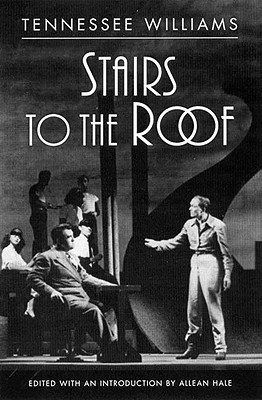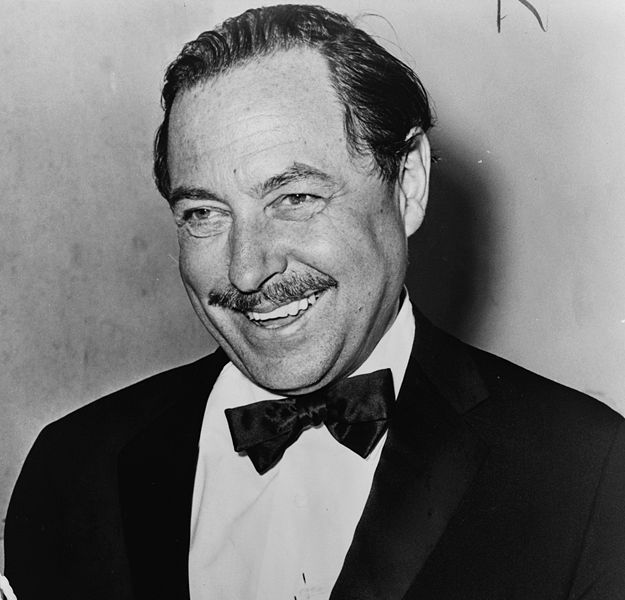
Sixty years ago a young Tennessee Williams wrote a play looking toward the year 2001. Stairs to the Roof is a rare and different Williams' work: a love story, a comedy, an experiment in meta-theater, with a touch of early science fiction. Tennessee Williams called Stairs to the Roof "a prayer for the wild of heart who are kept in cages" and dedicated it to "all the little wage earners of the world." It reflects the would-be poet's "season in hell" during the Depression when he had to quit college to type orders eight hours a day at the International Shoe Factory in St. Louis. Stairs is Williams' revenge, expressed through his alter ego, Benjamin Murphy, the clerk who stages a one-man rebellion against the clock, the monotony of his eight-to-five job, and all the dehumanizing forces of an increasingly mechanized and commercial society. Ben's swift-moving series of fantastic adventures culminate in an escape from the ordinary that is an endorsement of the American dream. In 1941 with the world at war and civilization in danger of collapse, Williams dared to imagine a utopian future as Ben leads us up his stairs towards the Millennium. Stairs to the Roof was produced only twice, once at the Playbox in Pasadena, California, in 1945, and subsequently at the Pasadena Playhouse in 1947. Now, in an edition meticulously prepared by noted Williams scholar Allean Hale, Williams fans can share this play of youthful optimism.
Author

Thomas Lanier Williams III, better known by the nickname Tennessee Williams, was a major American playwright of the twentieth century who received many of the top theatrical awards for his work. He moved to New Orleans in 1939 and changed his name to "Tennessee," the state of his father's birth. Raised in St. Louis, Missouri, after years of obscurity, at age 33 he became famous with the success of The Glass Menagerie (1944) in New York City. This play closely reflected his own unhappy family background. It was the first of a string of successes, including A Streetcar Named Desire (1947), Cat on a Hot Tin Roof (1955), Sweet Bird of Youth (1959), and The Night of the Iguana (1961). With his later work, he attempted a new style that did not appeal to audiences. His drama A Streetcar Named Desire is often numbered on short lists of the finest American plays of the 20th century, alongside Eugene O'Neill's Long Day's Journey into Night and Arthur Miller's Death of a Salesman. Much of Williams' most acclaimed work has been adapted for the cinema. He also wrote short stories, poetry, essays and a volume of memoirs. In 1979, four years before his death, Williams was inducted into the American Theater Hall of Fame. From Wikipedia